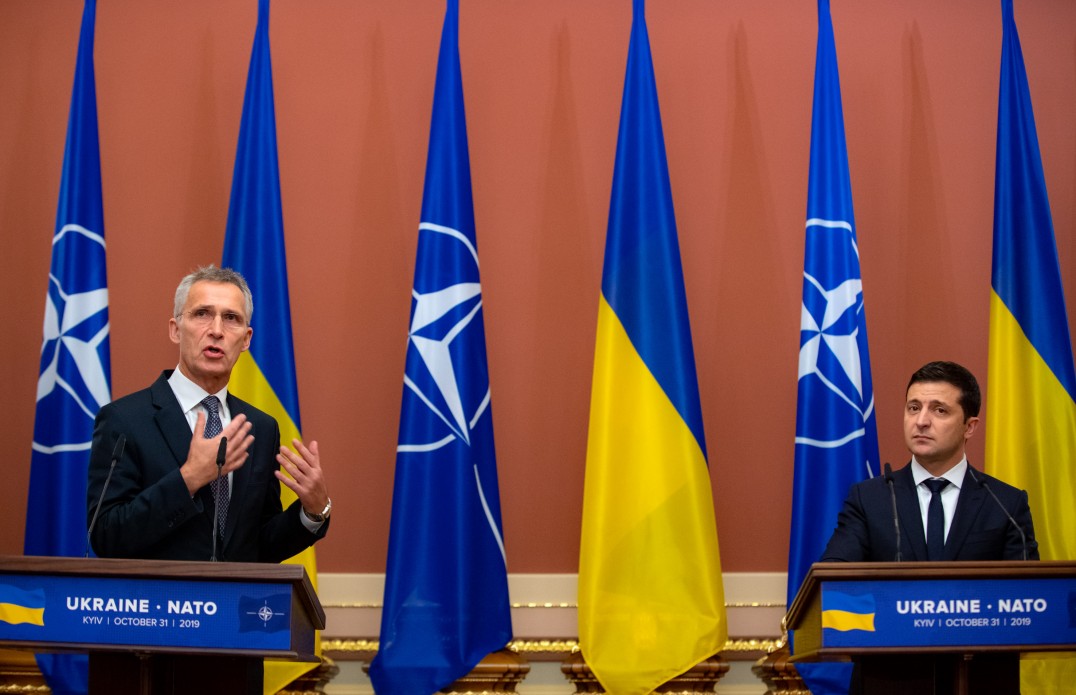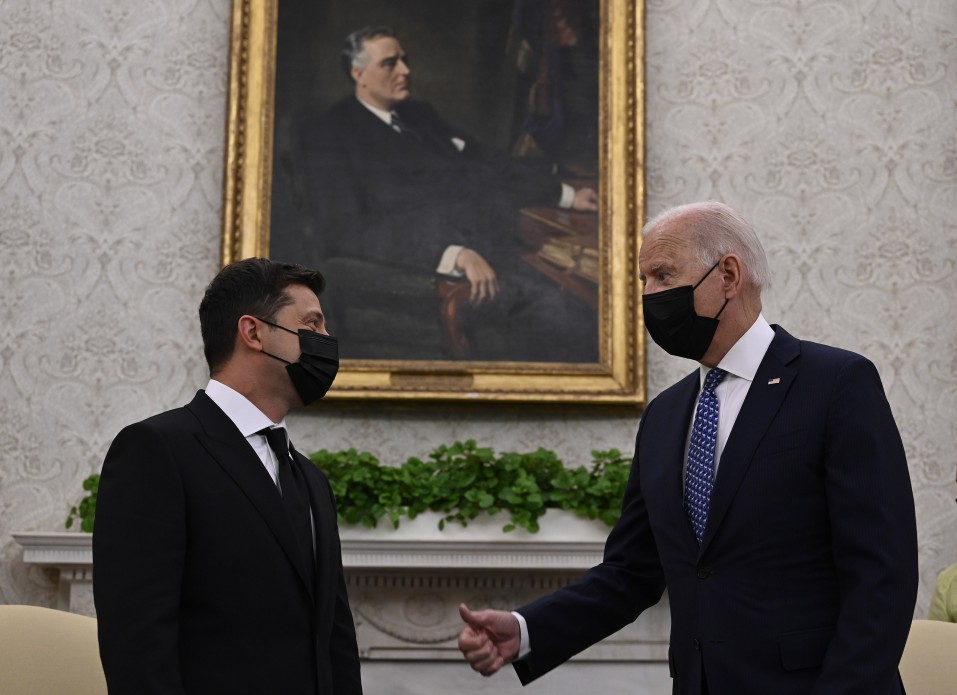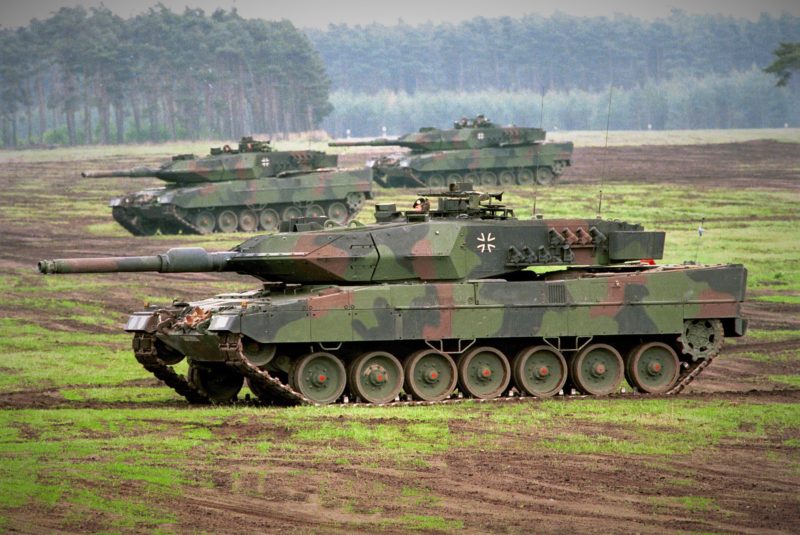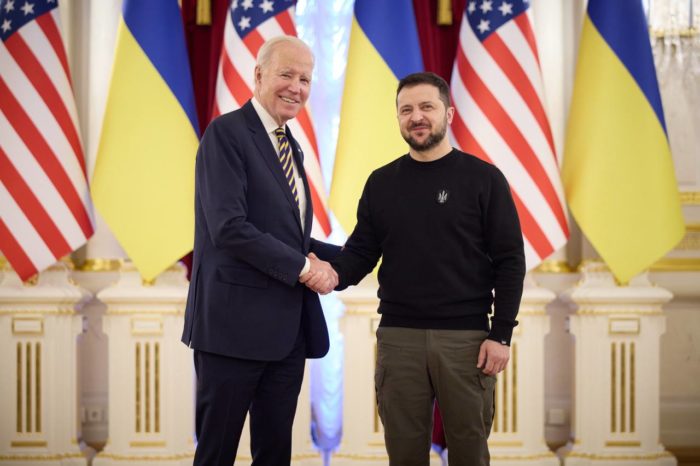* * * To read Part 1 of the analysis, please click here * * *
NATO has scrapped the meeting of the NATO-Ukraine and NATO-Georgia commissions that had been envisaged to be held during the Alliance’s June 14 summit in Brussels. The North Atlantic Council on the ambassadorial level decided, on May 6, against inviting partner countries to attend the summit. Kyiv has pleaded in vain with NATO to reconsider this decision. Ukraine was prepared to submit yet again its case for a NATO Membership Action Plan (MAP) at this summit. Ukraine’s MAP application is now postponed indefinitely.
Membership via a MAP had been officially promised since 2008, and repeated annually since then with diminishing intent to deliver. The United States traditionally led a minority group of member countries supporting Ukraine’s aspirations; but this year, the Biden administration has toned it down. Blinken communicated this change while in Kyiv in early May, but President Volodymyr Zelenskyy and his closest entourage did not or could not register the message. Instead, they raised public expectations unrealistically ahead of NATO’s summit. Failing expectations management generates disappointment and, potentially, NATO-skepticism in Ukraine, playing into Russia’s hands (see EDM, May 6, 10).
NATO Deputy Secretary General Mircea Geoană omitted the standard references to MAP, membership prospects, or even the Alliance’s 2008 promise when receiving successive Ukrainian delegations at NATO Headquarters, ahead of the summit. Geoană, a senior Romanian diplomat, has for many years promoted NATO’s enlargement and presence in the Black Sea region. NATO’s readouts of those Ukrainian visits (Nato.int, May 18, 27), however, dropped those standard references, apparently reflecting a negative rethinking in the Alliance at this time. The scrapping of the NATO-Ukraine and NATO-Georgia commissions’ meetings also raise questions about the North Atlantic Alliance’s willingness to establish more than a token presence in the Black Sea region. Reinstating the open-door pledge in the summit’s final communique will not, in itself, suffice to shore up credibility unless specific actions are indicated toward that end.
As he observed, this year would have been the most appropriate timing for NATO to approve a Ukrainian MAP, considering that Ukraine is standing up to Russia’s threats. And against that background, “How can you not invite Ukraine [at least] to attend this summit? We cannot understand at all: how could you not find a format for Ukraine’s attendance?” (UNIAN, May 26). And according to Deputy Foreign Minister Vasyl Bodnar, “The story about NATO’s open door to Ukraine is no longer credible in Ukraine. We need a clear timeframe for the signing of a MAP and then a clear membership perspective” (Ukrinform, May 22).
This is because “some [NATO] countries are afraid of antagonizing Russia or keep trying to appease Russia; some governments are afraid of their own voters’ possible reaction [to NATO enlargement]; and some do not believe in the authenticity of Ukraine’s Euro-Atlantic choice. Publicly, however, they would only speak about disappointment with the tempo of Ukraine’s reforms” (Ukraiynska Pravda, May 20).
Trending Now
Germany and France are acting within NATO against a Ukrainian MAP, but are acting in their own name outside the European Union as mediators of the conflict between Russia and Ukraine in the “Normandy” forum.
This official equidistance has made it possible for Berlin and Paris to tilt de facto in Russia’s favor in the quadripartite negotiations. But the tilt does not suffice to meet Russia’s appetites, the Franco-German mediation has consequently failed, and Kyiv has lost confidence in the Normandy process.
At his recent press conference on the second anniversary of his presidency, Volodymyr Zelenskyy argued that Chancellor Angela Merkel and President Emmanuel Macron “ought to support Ukraine more strongly… Their position has become weaker vis-à-vis Russia of late.” Zelenskyy attributed that weakening to the general economic situation and pressure from business interests on Berlin and Paris to ease the sanctions on Russia. (President.gov.ua, May 20).
Zelenskyy called yet again for enlarging the Normandy forum by adding countries more apt to meet Ukraine’s concerns. Unprecedentedly, he asked Germany to sell defensive military equipment, including lethal, to Ukraine. And he called for the first time on Germany and France to exert “strong pressure on Russia in the Normandy format” in order to end the war on the basis of a German-French-Ukrainian plan (Frankfurter Allgemeine Zeitung, May 31; Ukrinform, June 1).
Such complaints and pleas may be deemed unrealistic and futile. They may also serve as alibis for Zelenskyy’s own quest to negotiate bilaterally with President Putin (see EDM, April 22, 28, 29, May 3). But one way or the other, appeals of this sort do speak for Ukraine, testifying to its loss of confidence in the Normandy process.
Read More:
- Time to stop Nord Stream 2 now: open letter by Ukrainian politicians, leaders
- Is Ukraine getting closer to NATO membership?
- Under Biden, sanctions against Russia will be more consistent and stable, their “architect” says
- Ukrainian, US politicians call on Biden to promote Ukraine’s reforms, accession to NATO
- Transatlantic task force on Ukraine: can Joe Biden energize the Ukrainian reform agenda?





